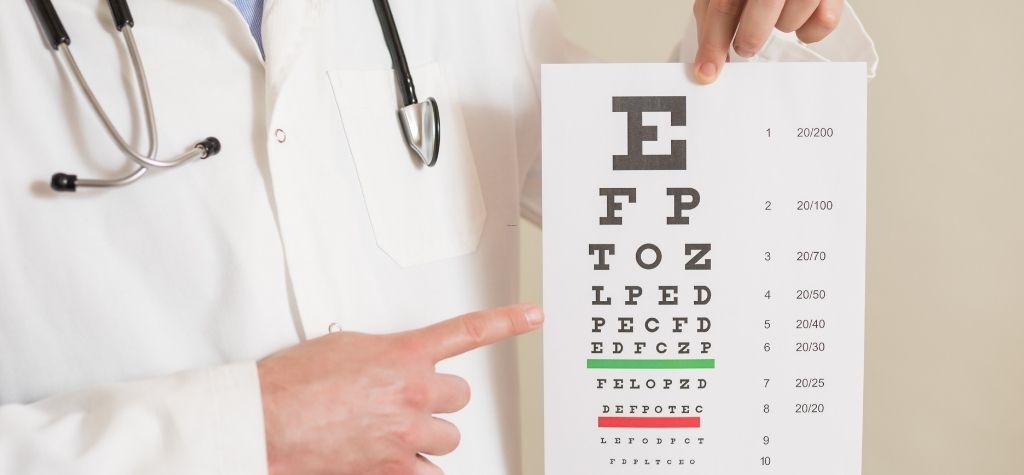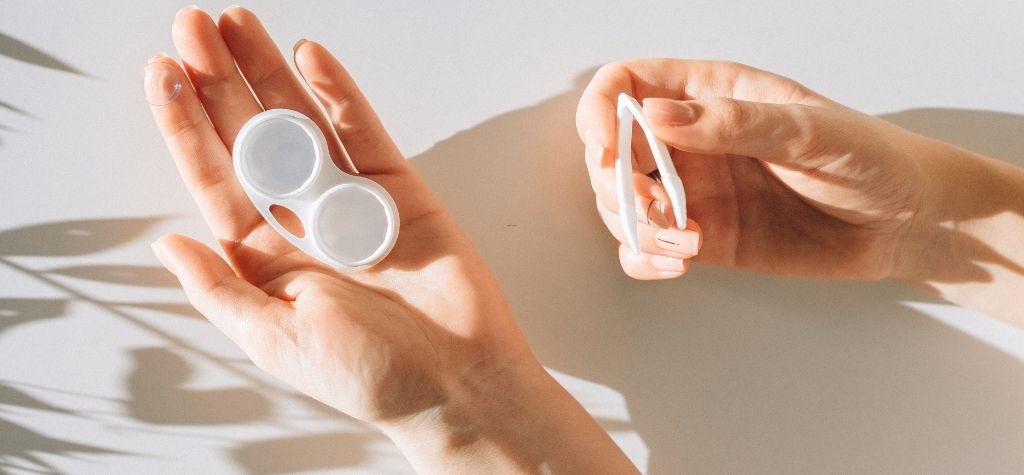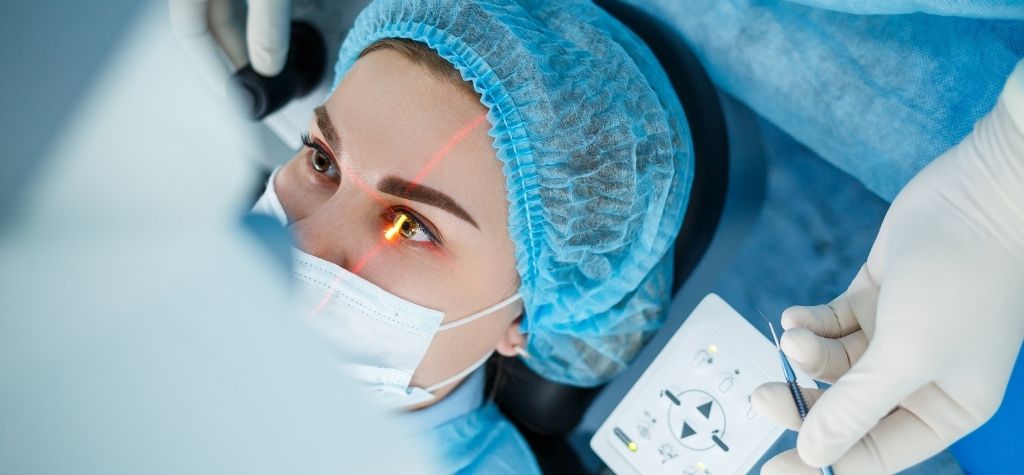Introduction to Eye Care and Optometry

What does an optician really do?
Opticians are highly trained professionals who interpret prescriptions written by optometrists or ophthalmologists to fit and dispense eyeglasses or contact lenses. They don’t perform eye exams or diagnose diseases but ensure that your vision correction devices are comfortable, properly aligned, and suitable for your daily lifestyle. They’re the unsung heroes making sure your prescription translates into real-world clarity.
Why regular eye exams matter
Skipping an eye exam might seem harmless, especially if your vision seems fine. But comprehensive exams can detect early signs of serious conditions like glaucoma, diabetic retinopathy, and macular degeneration. These issues often develop without symptoms. Regular checkups can prevent long-term damage and help you maintain healthy vision.
Eye Exam Anxiety: What You’re Afraid to Ask
Is it okay if I fail the eye test?
Absolutely. There’s no pass or fail in eye exams—just data to help determine your best possible vision. Feeling nervous about reading letters incorrectly is common. But remember, every answer helps your optometrist refine your prescription.
What if I can’t read the smallest letters?
That’s totally fine. The smallest line isn’t a benchmark of success. It’s simply a tool to assess your acuity. Even if you struggle with it, your optometrist will use other techniques to arrive at the right prescription for you.
Common Optical Concerns Patients Keep to Themselves
Are my eyes getting worse too quickly?
Vision can change with age, health, or environment. Rapid prescription changes might feel alarming but often have explainable causes. Conditions like diabetes, hormonal shifts, or prolonged screen use can all contribute. It’s important to share these concerns openly during your exam.
Can stress affect vision?
Yes! Stress can trigger visual symptoms like blurry vision, light sensitivity, twitching eyelids, and even migraines. The body’s fight-or-flight response can redirect blood flow and strain eye muscles, temporarily altering your vision. Managing stress isn’t just good for your mind—it’s great for your eyes.
Eyeglass Questions You’re Embarrassed to Ask
Why do my glasses make me dizzy?
Dizziness can occur when your prescription changes significantly or when you switch to progressive lenses. Sometimes the issue is with the lens placement or frame fit. Your eyes need time to adapt, but if discomfort persists, an adjustment might be necessary.
Do I really need progressive lenses?
If you’re dealing with both nearsightedness and farsightedness (often after age 40), progressive lenses are an efficient solution. They blend multiple prescriptions into one seamless lens. While there’s a short learning curve, they often eliminate the need to switch glasses for different tasks.
Contact Lens Confessions

What if I can’t get them out?
You’re not alone—this is a common fear. Most lenses are easy to remove with clean, dry hands. If they stick due to dryness, use rewetting drops first. Practicing in front of a mirror helps. Your optician can guide you until you’re comfortable.
Are my eyes too dry for contacts?
Dry eyes don’t disqualify you from wearing contacts. Specialized lenses—such as silicone hydrogel or daily disposables—can help. Your optometrist can also recommend eye drops or treatments to improve moisture levels before recommending contact wear.
Insurance, Pricing, and the Truth Behind Costs
Why are glasses so expensive?
Eyewear pricing reflects a mix of craftsmanship, lens customization, coatings, designer branding, and optometric services. Advanced lenses with anti-glare, photochromic, or blue light filters increase the cost. But remember—you’re paying for more than style; you’re investing in vision.
Can I trust online deals for eyewear?
Online retailers offer budget-friendly options, but they can’t match the precision and customization of an in-person fitting. PD (pupillary distance), frame adjustments, and optical center alignment are critical for comfort and vision quality. Use online deals with caution—and always compare with professional advice.
Children and Eye Care
How do I know if my child needs glasses?
Children rarely recognize or articulate vision issues. Warning signs include squinting, tilting the head, covering one eye, frequent headaches, or poor academic performance. Pediatric eye exams can detect problems early, ensuring better learning and development.
Is screen time really that bad for their eyes?
Excessive screen time can lead to eye strain, fatigue, and even accelerate nearsightedness (myopia). Encourage the 20-20-20 rule: every 20 minutes, look at something 20 feet away for 20 seconds. Balance screen use with outdoor activities for optimal eye development.
Digital Eye Strain: The Silent Vision Killer
How long is too long on screens?
If your eyes feel dry, strained, or tired after screen use, you’ve likely been on too long. Use screens in well-lit environments, increase font sizes, and take regular breaks. Ergonomic adjustments and screen filters can also reduce strain.
Can blue light glasses help?
Though research is mixed, many users report less fatigue, improved focus, and better sleep quality when using blue light glasses—especially in the evening. They filter out high-energy blue light, which can disrupt circadian rhythms and cause visual fatigue.
Vision and Aging: What to Expect

Why is my near vision blurring after 40?
This natural condition, called presbyopia, occurs when the eye’s lens loses flexibility. Reading glasses or progressive lenses can help. Presbyopia is universal—there’s no shame in needing visual help as you age.
Should I worry about cataracts?
Cataracts are a normal part of aging. Early-stage cataracts may not affect vision noticeably, but routine exams track their progression. Surgery is highly effective and safe when needed, restoring clear sight in most cases.
The Role of Nutrition in Eye Health
What foods are good for my eyes?
Leafy greens (like spinach and kale), carrots, sweet potatoes, citrus fruits, and oily fish are excellent for vision. They provide essential nutrients like lutein, zeaxanthin, omega-3s, and vitamin A, which support retinal health and reduce the risk of age-related issues.
Do supplements really help?
Supplements can benefit those with dietary gaps or age-related conditions. The AREDS2 formula is proven to slow progression in certain types of macular degeneration. Always consult with your eye care provider before starting any regimen.
Eye Myths Debunked by Professionals
Will reading in dim light ruin your vision?
No, it won’t cause permanent damage. It may strain your eyes or make reading difficult, but it won’t ruin your eyesight. Adequate lighting helps reduce fatigue but isn’t a critical factor in eye health.
Can carrots really improve eyesight?
Carrots are rich in vitamin A, which is essential for good vision, especially in low light. However, they won’t reverse existing vision problems. A balanced diet is more impactful than any single food.
Fashion Meets Function: Choosing Stylish Yet Practical Glasses
Are cheap frames a bad idea?
Not always. Budget frames can work well with the right fit and proper lenses. But very cheap options may compromise comfort, durability, and lens alignment. Consider it a balance between cost and long-term use.
How to find the right frame for my face
Face shape matters. Oval faces suit most styles, while round faces benefit from angular frames. Heart-shaped faces look great with bottom-heavy frames, and square faces often pair well with rounder designs. Your optician can help select a flattering and comfortable fit.
Eye Safety at Work and Home
Do I really need safety glasses?
Yes—especially in jobs involving chemicals, machinery, or airborne particles. At home, tasks like yard work, using power tools, or even deep frying can pose risks. Safety glasses prevent thousands of injuries annually.
Can household chemicals damage my eyes?
Absolutely. Cleaners with ammonia, bleach, or acids can cause serious injury. Always wear protective gear and avoid rubbing your eyes after exposure. Flush with water and seek medical help if contact occurs.
Vision Correction Options Explained

LASIK vs. PRK vs. ICL: What’s right for me?
- LASIK: Quick recovery, suitable for most common prescriptions.
- PRK: Better for thin corneas, longer healing.
- ICL: Ideal for extreme prescriptions or dry eyes, involves lens implants.
Each has pros and cons—consult your eye surgeon to assess candidacy and risks.
What are the risks and recovery times?
Most surgeries are safe with minimal risks. Common side effects include dry eyes, glare, or halos that typically resolve. LASIK recovers in days, PRK in weeks, and ICL may require a bit more downtime. Follow-up care is essential for all.
Talking Honestly With Your Optician
What should I tell my optician?
Be honest about symptoms, screen time, medications, allergies, and lifestyle habits. The more they know, the better they can tailor your eyewear or recommendations. No detail is too small when it comes to your eyes.
How to advocate for your vision health
Ask questions, request explanations, and speak up about discomfort. Your optician is your ally. Trust builds better outcomes—and better vision.
Frequently Asked Questions (FAQs)
Q1: Can I damage my eyes by wearing the wrong glasses?
Yes, prolonged use of incorrect prescriptions can cause eye strain and headaches.
Q2: Why do my eyes burn at the end of the day?
Likely due to dryness or prolonged screen use. Artificial tears and screen breaks can help.
Q3: How often should I get my eyes checked?
Adults should get exams every 1-2 years; more frequently if you have vision problems or health conditions.
Q4: Are dollar store readers safe?
They’re okay for occasional use but won’t replace a proper prescription.
Q5: Should I wear sunglasses even when it’s cloudy?
Yes, UV rays penetrate clouds. Sunglasses protect against long-term damage.
Q6: Can eye exercises improve my vision?
They can reduce strain but won’t change your prescription significantly.
Conclusion: Be Your Own Eye Advocate
From the optician’s chair, it’s clear that many patients hold back valid, important questions out of fear or embarrassment. But your vision is too precious for guesswork. Don’t hesitate—ask, learn, and advocate for your eye health. After all, the best outcomes happen when you’re part of the conversation.

